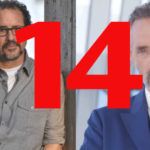We run our website the way we wished the whole internet worked: we provide high quality original content with no ads. We are funded solely by your direct support. Please consider supporting this project.
God of the Possible Endorsements and Reviews
Endorsements:
“God of the Possible is a good, simple introduction to the issues and the battle over ‘open theism.’ Boyd consciously wrote this as a pastor for lay people. It is also clear that he developed his ideas as a result of being a pastor struggling with the issues in the life of his congregation. I recommend God of the Possible.”
–John E. Phelan Jr., The Covenant Companion
“Greg Boyd presents a powerful argument for the open view of God as omnipotent, sovereign, and yet vulnerable. Boyd’s God is alive and personal as well as infinite and perfectly wise. The portrait of God drawn here is unrecognizable compared to the caricatures of openness theism’s God crudely crafted by many of its critics. It is much more majestic and beautiful as well as biblical. Inquiring Christian minds will love this book for its creativity and clarity. Closed minds will despise it for the same reasons. Those who have been merely “open to the openness of God” will find its arguments difficult to resist. Everyone who reads it will be challenged to reconsider traditional ideas of God in the light of a fresh reading of Scripture. Baker Book House is to be commended for living up to its Reformed commitments by publishing this book. To be “Reformed” is to be open to new light from God’s Word: “reformed and always reforming.”
–Roger E. Olson, George W. Truett Theological Seminary, Baylor University
“Gregory Boyd gives a strong and accessible argument for views that challenge some traditional theological positions. Many will disagree, but fair-minded readers will come to understand both that the “open God” position is motivated by a desire to be faithful to the Bible and that it is consistent with both classical Christian orthodoxy and evangelical distinctives. Boyd himself provides a fine example of how evangelical Christians may disagree in a loving and respectful manner.”
— C. Stephen Evans, professor of philosophy and dean for research and scholarship, Calvin College
“A stunning book on the biblical truth of an open future and the revolutionary benefits of believing it. What a great way to begin the new millennium theologically with the open view of God. I only hope that his witness is heard before the self-styled guardians of the tradition marginalize him.”
–Clark H. Pinnock, McMaster Divinity College
“A quiet movement of God’s Spirit is causing a few evangelicals to shake themselves out of the theological torpor that prevails in our day in order to question the biblical validity of some of their unexamined religious assumptions…. Among them are devout and thoughtful scholars who would prefer not to rock the boat of theological tradition but who feel compelled to speak their convictions out of loyalty to the truth of Scripture and because of their love for the church. The reading of this book convinces me that its author is such a person. The book throbs with its author’s desire to rescue our understanding of God from the effects of the crippling impotence that has been forced upon him by anthropomorphic definitions of divine sovereignty. With irrefutable exegetical rigor, he analyzes the biblical data to show that traditional formulations about the relation of God to history have been shaped more by pagan philosophical presuppositions than by the content of Scripture. In order to be credible, any serious discussion of the doctrine of the sovereignty of God must now demonstrate knowledge of this thesis and interact with it intelligently.”
–Gilbert Bilezikian, professor of biblical studies emeritus, Wheaton College
Reviews:
“This exceptionally engaging and biblically centered text defends a theological claim that is generating heated controversy among evangelicals: that from God’s perspective, the future is partly open, a realm of possibilities as well as certainties. Boyd, professor of theology at Bethel College (St. Paul, Minn.) and author of Letters from a Skeptic and God at War, displays a remarkable ability to make “open theism” accessible to a wide audience. Open theism usually receives a cool reception among evangelical theologians, whose views of divine foreknowledge often echo Augustine, Aquinas and Calvin, as well as Hellenistic philosophical theology. This classical tradition interprets God’s perfection as eternal changelessness, ruling out the possibility that God could learn new information, or that God’s intentions could change. Boyd sidesteps the more abstruse theological debates surrounding this issue in favor of a patient, but not pedantic, exposition of a “motif of future openness” in biblical narrative and prophecy. These biblical texts repeatedly portray God as changing plans in response to human decisions, viewing future events as contingent and even being disappointed at how events turn out. Boyd clearly believes the debate over open theism has gotten off to an unfortunate start, as disagreements about the “settledness” of the future have unnecessarily been interpreted as challenges to God’s omniscience or sovereignty. This convincing, clear book promises to raise the caliber of argument in the controversy.
—Publishers Weekly
Related Reading

Suggested Further Readings for MYTH OF A CHRISTIAN RELIGION
Here is a chapter-by-chapter list of suggested further readings for The Myth of a Christian Religion. If you’d prefer to download the readings as a Word document, click here Suggested Readings. Chapter 1. Giant Jesus Andrews, D. Christi-Anarchy: Radical Spirituality for a New Millennium (Lion, 1999). Andrews insightfully demonstrates – in his thought and…

Part 14 (of 15) —Taking Responsibility (Part B)
Assessing Jordan Peterson’s 12 Rules of Life “If things are not going well for you – well, that might be because, as the most cynical of aphorisms has it, life sucks, and then you die. Before your crisis impels you to that hideous conclusion, however, you might consider the following: life doesn’t have the problem…

Podcast: The Righteous Mind: Why Good People Are Divided by Politics and Religion
Greg talks about a book he enjoyed: The Righteous Mind: Why Good People Are Divided by Politics and Religion. http://traffic.libsyn.com/askgregboyd/Episode_0467.mp3

Part 6 (of 15): Evolutionary Conservatism
Assessing Jordan Peterson’s 12 Rules for Life by Greg Boyd “If reality is that which selects, then what’s selected by that reality must in some sense be correct.” Evolutionary Wisdom As was true of Heraclitus and Lao Tzu, and as a number of domains of contemporary science have demonstrated over the last century, Peterson believes…

Will There Be A Launch Event for Crucifixion of the Warrior God?
In this episode Greg gives an update on book release plans for “Crucifixion of the Warrior God.” http://traffic.libsyn.com/askgregboyd/Episode_0038.mp3

Podcast: What Are You Reading Now?
Greg discusses what he is reading now that Crucifixion of the Warrior God and CrossVision are completed (Links Below). http://traffic.libsyn.com/askgregboyd/Episode_0251.mp3 Books: The Training of KX12 and The Physics of Theism
